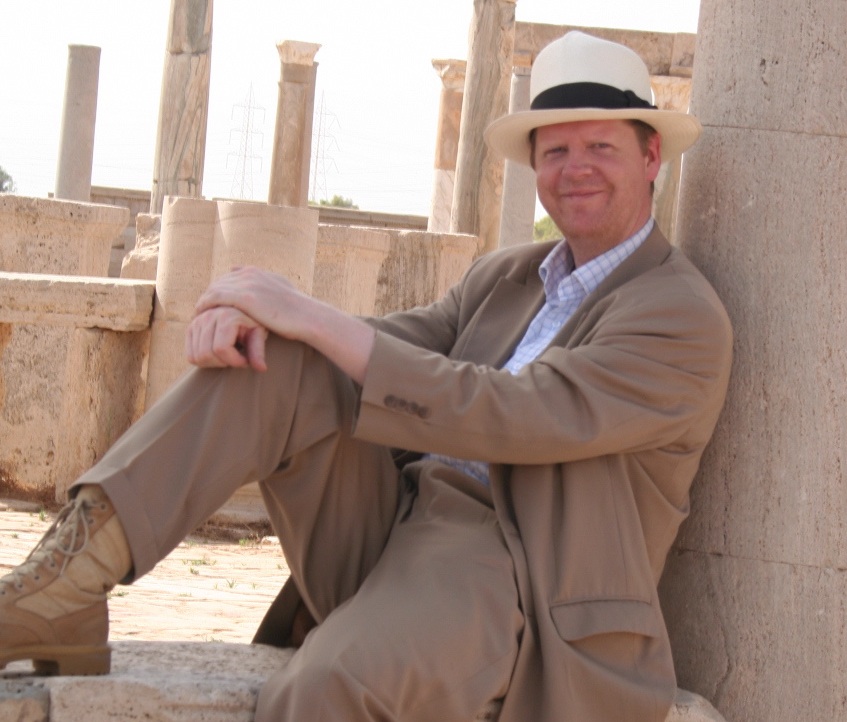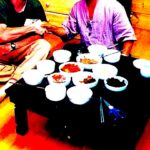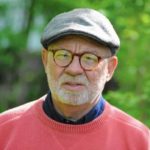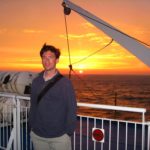Eamonn Gearon is a writer, analyst and Arabist who has spent most of the past two decades living, working and traveling across the Greater Middle East, from Kabul to Casablanca, including a number of solo, camel-powered explorations of the Libyan Desert. His first book — The Sahara: A Cultural History — was published to great acclaim last year in the UK and USA. Michael Palin called it, “A succinct and successful summary of the past, present and future of this surprisingly busy desert.”
How did you get started traveling?
After listening to my father’s tales of Egypt, I ran away from home at the age of five, with the stated aim of exploring Africa. I got as far as the end of the street before returning home for my tea. Before university, most of my traveling was across Europe. My personal exploration of North Africa and the Greater Middle East started after I graduated, and it is far from over.
How did you get started writing?
I have always been a writer. As a child, I wrote stories as a means of escape; in my teenage years it was angst-ridden poetry and diaries. In adulthood I have been a much happier, if often serious, writer. My work is both an aide memoir and an attempt to understand the world around me.
What do you consider your first “break” as a writer?
The first time I saw my name in print it gave me an enormous fillip. It was a book review in the Geographical magazine; the memoir of a Tibetan Buddhist monk who had escaped from a Chinese prison where he and his fellow inmates were frequently tortured. This, my first commission, really inspired me to start taking the business of writing seriously.
As a traveler and fact/story gatherer, what is your biggest challenge on the road?
It is not unusual for it to take longer to get a proper feeling for a city than one has time available. This can become very frustrating in the search for a good story, and it can also make a place seem very lonely. Very rarely do I feel the same way on the open road or in the country, where people generally seem happier to talk with a stranger who is just passing through.
What is your biggest challenge in the research and writing process?
Easily doing far more research than I need to or can justify for any given job. The Sahara is essentially the product of 20-years of research, distilled into some 270 pages. That said, time spent reading and researching is never really wasted as it often leads to new, unexpected writing ideas.
What is your biggest challenge from a business standpoint?
It can be frustrating not hearing back from editors who have specifically asked you to send them a pitch. More annoying still is chasing payment for work done.
Have you ever done other work to make ends meet?
I think doing other, non-writerly forms of work should be encouraged. Variety is one important spice that makes life so tasty. In my working life, I have taught, lectured widely, been a special advisor in a number of Middle Eastern countries, and produced a great deal of analysis on places I have got to know intimately through years of living abroad.
What travel authors or books might you recommend and/or have influenced you?
Every writing journey should start with a (re-)reading Herodotus’s Histories. Ibn Battuta’s Travels are great for looking back in time across the Islamic world. Ralph Bagnold’s Libyan Sands inspired me, Eric Newby makes me laugh, and wondering if we will ever see the third, posthumous, volume about Paddy Leigh Fermor’s walk across 1930s Europe keeps me awake at night.
What advice and/or warnings would you give to someone who is considering going into travel writing?
Do what you love, not what you think you ought to do. While it is possible to make a living as a writer, I wouldn’t advise doing it just for the money. Practically, always carry a notebook and more than one pen to make a note of what people say. Details from conversations are easy to forget, hard to reproduce later, but are often the most important part of any journey or encounter.
What is the biggest reward of life as a travel writer?
As the Arabic proverb says, “He who travels sees more.” The person I am still becoming is growing thanks to the unpredictable, lifelong education received at the hands of countless ‘teachers’ I have met on the road. Also, since the publication of The Sahara it is nice to have one’s work complemented by the best travel writers alive today.





